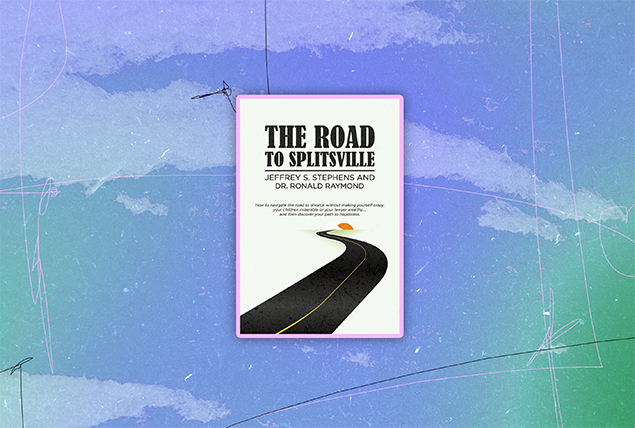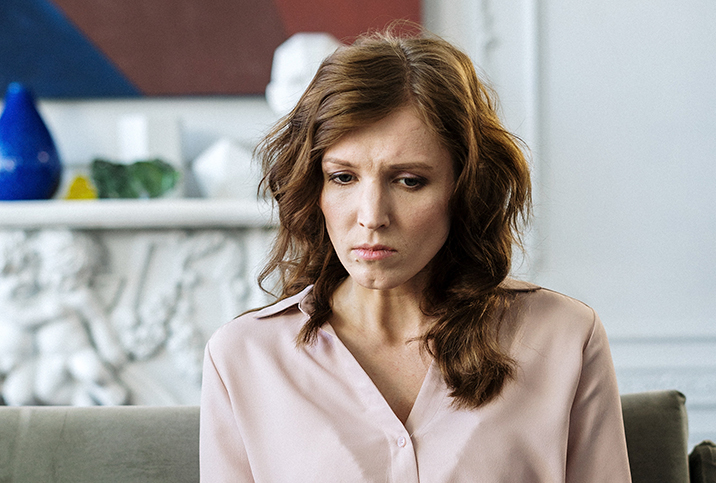Between the Pages: 'The Road to Splitsville' Navigates Divorce

The United States is rated sixth in the world for its divorce rate, with 40 percent to 50 percent of its marriages ending in divorce. Second and third marriages have an even higher rate of divorce—more than 60 percent.
Among the most common reasons for divorce are a lack of commitment, constant arguments and communication issues, extramarital affairs, domestic abuse and substance use, and a lack of intimacy.
Regardless of your reason for opting for a divorce, "The Road to Splitsville" will hold your hand throughout this journey, acting as a guide to the emotional and financial aspects of this decision.
The book was written by clinical psychologist Ronald Raymond Jr., Ph.D., in Ridgefield, Connecticut, and Jeffrey Stephens, J.D., an author and attorney based in Greenwich, Connecticut. Raymond and Stephens have shared many of the same clients over their decades of experience in their respective fields.
"We thought that we'd get together in order to just provide a book that would help people go through the process," Raymond said, emphasizing that it is indeed a process and not just jumping from A to Z. "There's a bunch of steps in between that people have to go through [while dealing] with a lot of emotional turmoil. And so, we thought this book would help them go through that in a less traumatic way and also to provide some sense for life beyond divorce."
In this exclusive interview, Raymond provides insights into the emotional stages of divorce, how to discuss it with your small children, and how to move on and find love again.
Editor's note: This interview has been edited for length and clarity.
Why did you think it was important to include so many case studies and practical examples for your readers?
Raymond: I thought this would enable people to relate to situations they're going through. I had the wonderful experience of counseling hundreds and hundreds of families going through this process, and I saw what turmoil it created for people. I thought if we could ease that a little bit, it would really help.
You mentioned the emotional stages of the divorce experience. What do we need to know about those stages?
One of the emotional stages that always occurs is a sense of guilt, which is a terrible thing to deal with. It's useless and doesn't get us anywhere.
But people struggle as they wonder if they have created this [situation] in some way. They go through the, "I should have, I could have, I would have."
Usually, it doesn't lead any place because most of the time what happened was that the basic trust eroded. People usually get married for love, and that love dwindles if trust dwindles.
In 95 percent to 99 percent of the cases I've worked with, people have tried everything, but usually, one of the people in the marriage rejects any offer for help or change. This is why we focused on trying to help people look at what made them want to get married to begin with.
You don't change anyone. You can't get married with the idea you're going to change a person. People don't work that way.
The other emotional stage most people go through is anger. There's a tremendous amount of anger that builds up toward the spouse you're leaving. A person has to get rid of that because just getting your divorce papers doesn't separate you from that person. You have to stay with them, particularly if there are children involved.
There are always issues that have to be discussed and gone over, and there are typically financial considerations to take into account.
We can also help people deal with the fact that there's great sadness involved because you've had many good things going on in the marriage, even if getting divorced. There are a lot of people who go to see a counselor who may not be familiar with divorce and identify their feelings as depression. Most often it’s sadness.
In most cases, there are aspects [of the marriage] they can recall that are very pleasurable and pleasant to think about. We encourage people to hold on to those feelings and memories because there were some good times.
Many people marry a second time after getting divorced, and too often, they marry the same kind of person. The same issues exist. We're hoping that we're helping people look at why they got married in the first place and not repeat those same mistakes.
How is divorce complicated when children are involved?
In recent years, we've seen an increase in the number of older people getting divorced, which I think comes about because they felt they should stay in there for the kids, which doesn't work.
I can't tell you how many adults I have seen over the years who said, "We wish our parents had gotten divorced. It would've been easier rather than listening to all of the fighting and the bickering that went on."
When children are involved, it's important to speak with them so they don't think the divorce is their fault. That's something you can't overemphasize. I always stress to people that they should talk to the children together so they don't blame one another.
The children have to know they did not play a role in this. There's something that happened to the relationship between the adults only.
You also talk about how asking your friends for divorce advice is not a good idea. Why is that?
I think we've all had the experience of thinking everybody knows better than us about something and you're getting all sorts of advice.
That doesn't mean you shouldn't have some confidentiality with one very personal friend but don't start telling everybody. People don't really want to hear about your state, especially if you're feeling miserable. They may believe they do, but they don't, so you might get advice that's not very good.
Now, you're often in that situation where you have to be careful of the family because the family often is resistant to divorce for their own reasons. In many cases, your partner may seem very nice to the in-laws, parents, friends and so on, which means they can't see that he or she had an affair or something like that.
How can people move on and find love again after divorce?
In my experience with a lot of people, it's important to first find love for yourself. Building your own being, your own sense of self and what's important to you is really critical before moving on to the next relationship.
When you meet someone new, you have to be you, not the pretense of who you are or what you think that person wants and needs you to be. You have to be you, a genuine you. And building up to that takes a lot of road work for you—for the person themselves—and find what they really want to do.
It's amazing how many people I've seen go on to a different career, for example, after divorce. Sometimes this is a much more gratifying way of living than they were living before.


















